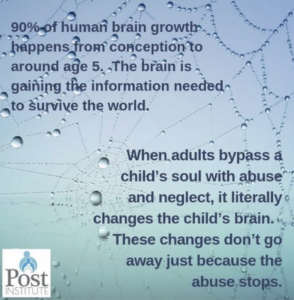 IDEA
IDEA
It all starts with IDEA: The Individuals with Disabilities Education Act. Basically IDEA makes sure that all children with disabilities have available to them a free appropriate public education that emphasizes special education and related services designed to meet their unique needs and prepare them for further education, employment, and independent living. Now that’s a mouthful. Keep reading so you can help your child get what they need and deserve in school.
Disability
What is a a disability?
A legal definition of a person with a disability includes those who have a physical or mental impairment that substantially limits one or more major life activity. This is important since you cannot receive special education services unless you have a disability. The word disability has stigma attached to it unfortunately.
To qualify for special education, students must have a disability that falls under one of the 13 categories IDEA covers. These include autism, deaf-blindness, deafness, emotional disturbance, hearing impairment, intellectual disability, multiple disabilities, orthopedic impairment, other health impairment (includes ADHD and FASD), specific learning disability (includes dyslexia, dyscalculia, dysgraphia, and other learning differences), speech or language impairment, traumatic brain injury, and visual impairment, including blindness.
Graham: Real World Example
To better understand why your adopted child can benefit from special education services, let’s look at a real example. Graham is in the 1st grade at a small elementary School. He was adopted at 2-years-old by loving parents who had 3 biological children, ages 9, 14, and 17. Graham was removed from his biological parents home because of addiction, domestic violence and neglect. His adopted parents went through training about trauma and other adoption related issues to help them better parent Graham. Since they were in the process of raising 3 other children, they felt confident about their ability to successfully parent Graham despite his rough past.
Graham had some real issues remaining calm when he arrived at their home. He seemed to get upset and mad so easily. The family sought the help of an adoption-informed therapist to help them teach Graham how to calm himself. It’s certainly a work in progress. They recently asked for Post Perm services to help them figure out how to best help Graham both at school and home.
Graham has trouble sitting still and paying attention. In kindergarten, this was OK, but in first grade, the demands have grown and this has become a problem. Graham’s counselor has recommended some adaptations at school to help him get more grounded: a rubber band on the bottom of his chair, fidgets to use at his desk, a special cushion Graham can sit on, and all of these are helping. Their Post Perm worker suggested that they ask the school to evaluate Graham to receive special education services. They sent an email to the principal and teacher and that process has begun.
Academically, Graham also is suffering. He seems to forget things from one day to the next. His attention issues make the large group a challenging setting for learning. Graham is getting more and more frustrated as he just cannot master the necessary reading and math tasks asked of him.
When he gets frustrated, he can go off the handle rather quickly. Sometimes, Graham can calm down and use the strategies his parents and counselor have taught him. More and more often, he is unable to do so. As school is progressing into the Fall, Graham sometimes leaves the classroom for an hour at a time in order to re-regulate by spending time in the calming room. Problem is he is not identified as a special education student so he keeps getting in trouble and falling behind. He loses recess 3-4 times per week. The teacher is at her wit’s end and has reached out to the parents. Graham is starting to feel worse about himself and has started refusing to go to school.
How Special Education Can Help
Once Graham gets a disability diagnoses from the School Psychologist, which will most likely be ADHD at the least, he is able to receive special education services. All the things the school is already doing for him like the fidgets will be written into a plan to follow him through school. Better yet, his team will create specialized accommodations to help him do better in school. A behavioral specialist may be called in to brainstorm solutions. Maybe Graham needs to be pulled out of the regular classroom and receive more individualized support for reading? Maybe he needs sensory and movement breaks built into his day to help his body remain calmer. Perhaps Graham needs each academic request to be broken down into smaller bite size pieces. He may benefit from a visual schedule placed on his desk. Perhaps Graham needs more repetition than other students in learning math facts and sight words.
How Does This Relate to Graham’s Past
Children whose mother had consumed alcohol or drugs during pregnancy often have attention issues, impulsivity, memory issues, and overall executive functioning deficits. Children who have witnessed domestic violence typically have poor attention as they can be on high alert or completely shut down preparing for the next danger. Children who have been neglected never learned how to self-regulate. These issues can and need to be addressed through special education services. Your child deserves to learn in a school setting that is supportive and designed to their unique learning styles and emotional needs. Special education can help: lose the stigma and get your child what they need!





